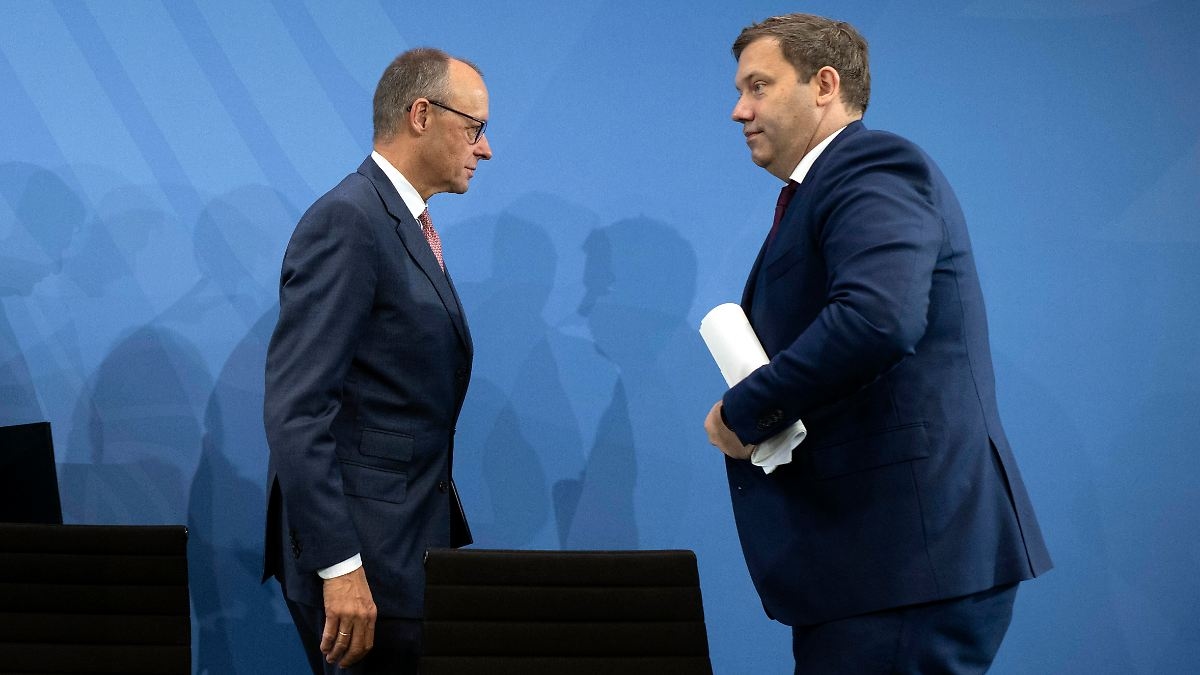Security summit in the Chancellery?: SPD wants to tackle "cityscape" at the highest level

The black-red coalition cannot pacify the "cityscape" dispute – on the contrary.
(Photo: picture alliance / Ipon)
Social Democrats oppose reducing the city's problems to migration and demand a joint strategy for greater security. However, the CDU/CSU sees no need for a summit meeting at the Chancellery.
In the ongoing debate about increased security in public spaces, the SPD is calling for a summit meeting at the Chancellery. SPD Bundestag member Adis Ahmetovic, who, along with nine other members of parliament, drafted an eight-point plan for the "cityscape" debate, told the "Bild" newspaper: "I expect the Chancellor to bring together representatives from major cities, municipal associations, and the parliamentary groups for a cityscape summit, like the steel or automobile summits." The CDU/CSU sees no need for this.
In their plan "for a social, safe, and solidarity-based cityscape," the group of SPD representatives wrote: "Difficulties in the cityscape have diverse causes: social injustice, housing shortages, neglect of public spaces, a lack of social infrastructure, and inadequate prevention." Those who narrow the debate to asylum, refugees, and migration are hindering solutions. The authors suggested that the coalition agree on a common understanding of the "cityscape" by the end of the year. "Whether in the coalition committee or a working group, clarity is needed in this debate now. For all the people in our cities," the paper states.
SPD parliamentary group manager Dirk Wiese supports the group's concerns. "The 8-point plan was a contribution to the debate by members of our parliamentary group, which aimed to objectify the 'cityscape' discussion and not narrow it down to the topic of migration. I explicitly share this goal," Wiese told Bild. He emphasized: "This indeed requires a coherent concept. We should work on that."
Union: Further discussion not necessaryThe CDU/CSU, however, rejects a summit. "The Chancellor has clearly identified the problem; further discussion is unnecessary," parliamentary group manager Steffen Bilger told Bild. "The broad majority of the population, as well as many SPD state premiers, district administrators, and mayors, already share a very good understanding of what the Chancellor spoke about," the CDU politician emphasized. However, the CDU/CSU remains open to discussions with the SPD about an even more consistent domestic policy at any time.
Alexander Throm, the CDU/CSU parliamentary group's domestic policy spokesman, criticized the SPD parliamentary group's paper in the newspaper, saying it ignored the issues that actually concern people.
The debate was triggered by a statement by Merz on October 14. He said the federal government was correcting past shortcomings in migration policy and making progress, "but of course we still have this problem in the cityscape, and that's why the Federal Minister of the Interior is now in the process of enabling and carrying out returns on a very large scale." Later, when asked about this, he said: "Ask your daughters what I could have meant by that."
Demos against Merz's statementsOn Wednesday, he then specified that problems would be caused by those migrants who did not have permanent residence status, who did not work, and who did not comply with the rules applicable in Germany.
Even after the details were clarified, demonstrations against Merz's statements continue. SPD parliamentary group deputy Wiebke Esdar also participated in a rally in Bielefeld on Friday, causing discord within the coalition.
CDU/CSU parliamentary group leader Jens Spahn said on the ARD program "Report from Berlin": "Opposition in government – that has never worked." Bilger criticized in the "Tagesspiegel": "Any SPD leader who demonstrates against the chancellor of the joint coalition is recklessly contributing to people's less confidence in us to govern well."
Source: ntv.de, chl/dpa
n-tv.de




